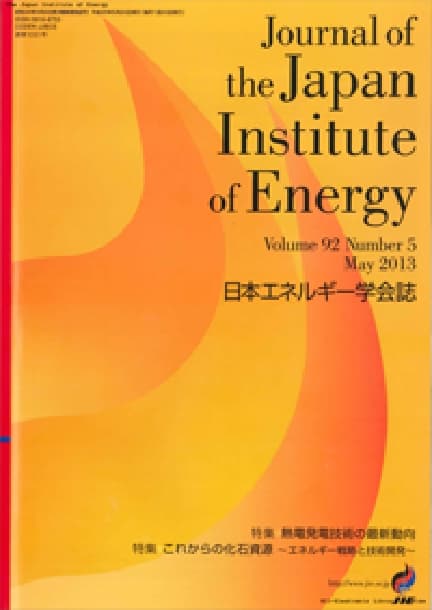NEDO's Worldwide Dissemination of High-efficiency Clean Coal Technology
Kosei IHARA, Atsushi KAGEYAMA, Nobuyuki ZAIMA, Nozomi SAGARA
pp. 107-112
DOI:
10.3775/jie.93.107Abstract
Since fiscal year 2011 the New Energy and Industrial Technology Development Organization (NEDO) has carried out feasibility studies to promote the international diffusion of high-efficiency clean coal technology (CCT) in order to stabilize energy supply and demand and address global environmental issues. This paper presents an overview of good examples for strengthening Japan's global competitiveness and support for system exports in twenty feasibility studies that were conducted in fiscal years 2011 and 2012. Highlights of the paper include Japan's high efficiency and low failure rate in long-term operation and maintenance, matching the needs of counterpart countries by reducing environmental load using carbon dioxide capture and storage (CCS) technology, and optimizing facilities, layout, etc. Although CO2 emission reduction measures and the application of high-efficiency CCT such as ultrasupercritical (USC) technology to replace old existing power stations is effective, improved generation efficiency and the introduction of CCS should also be strategically developed in the near future. Through these activities, NEDO is contributing to the realization of a low carbon society.
Readers Who Read This Article Also Read
Journal of the Japan Institute of Energy Vol.92(2013), No.1
Journal of the Japan Institute of Energy Vol.93(2014), No.3
Journal of the Japan Institute of Energy Vol.93(2014), No.7










